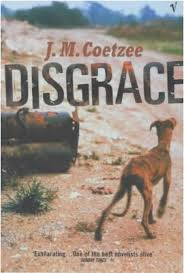disgrace
英 [dɪsˈɡreɪs]
美 [dɪsˈɡreɪs]
- n. 耻辱;丢脸的人或事;失宠
- vt. 使……失宠;给……丢脸;使……蒙受耻辱;贬黜
使用频率:

记忆方法
记忆“disgrace”的方法是将“dis”视为否定前缀,联想为“不”,而“grace”意味着优雅。因此,可以将“disgrace”记忆为“不优雅”或“丢脸”,这样就能形象地记住它的意思了。
以上内容由AI生成, 仅供参考和借鉴
中文词源
disgrace 不光彩
dis-, 不,非,使相反。grace, 优雅,光彩。
英语词源
- disgrace (v.)
- 1550s, "disfigure," from Middle French disgracier (16c.), from Italian disgraziare, from disgrazia "misfortune, deformity," from dis- "opposite of" (see dis-) + grazia "grace" (see grace). Meaning "bring shame upon" is from 1590s. Related: Disgraced; disgracing. The noun is 1580s, from Middle French disgrace (16c.).
权威例句
- 1. Republican leaders called him a disgrace to the party.
- 共和党领导人称他是全党的耻辱。
- 2. What went on was a scandal. It was a disgrace to Britain.
- 发生的一切是个丑闻,是给英国抹黑。
- 3. Kinkel said the attacks had brought disgrace on Germany.
- 金克尔声称这次袭击使德国蒙羞。
- 4. His vice president also had to resign in disgrace.
- 他的副总统也被迫不光彩地辞去职务。
- 5. The national airline is a disgrace.
- 国家航空公司真可耻。